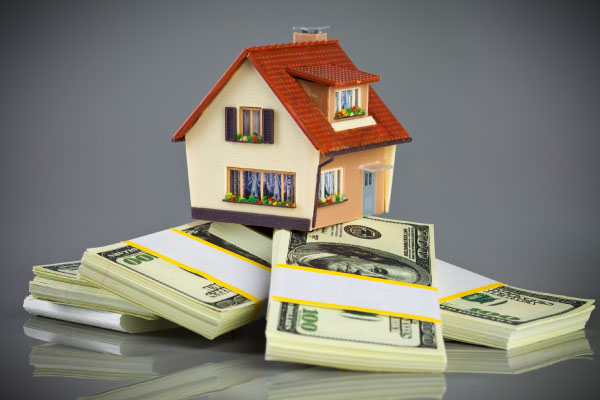When Should I Refinance My Home?
Refinancing is a great way to save money on your mortgage, pay it off sooner, and much more. Before you get started, you should decide whether it’s right for you. Discover why you should refinance, when the right time to do it is, and calculate your payment to ensure you’re making the right decision.
What is a refinance?
In short, refinancing means revising your current loan terms to better suit your needs. They can be used to:
- Take advantage of low interest rates to reduce your payment.
- Shorten your loan term and pay your home off faster.
- Change your adjustable-rate mortgage to a fixed-rate mortgage (or the other way around).
- Get rid of Private Mortgage Insurance.
- Tap into your home’s equity to make home improvements, a large purchase, or pay off debt.
YOU MIGHT LIKE: 4 Ways To Use Your Home’s Equity
Refinancing is a great way to save money on your mortgage, pay it off sooner, and much more.
What should I consider before I refinance?
Cost
Just like any mortgage, there are many costs and fees you need to account for. Refinancing takes a percentage of your principal balance (the balance remaining on your home) and applies it to your closing costs. This, paired with other fees along the way can add up quickly. To make a refinance worth your while, you should be confident these fees do not outweigh your current mortgage balance. Check out our refinance tools to do just that.
Timing
The timing of your refinance is important as well. If you plan to move in the next couple years, you may want to wait. If you move too soon, you won’t have enough time to break-even on your refinance and begin saving money.
The same goes for paying off your loan. After a certain point in your mortgage, refinancing doesn’t make sense anymore. The costs will be too much compared to your remaining balance. Make sure to factor this in when calculating your refinance breakeven.
DG PINNACLE RECOMMENDS: 5 Tips To Reduce Your Mortgage Payment
If you plan to move in the next couple years, you may want to wait. If you move too soon, you won’t have enough time to break-even on your refinance and begin saving money.
Interest rates
You want to refinance when interest rates are lower than your current one. In general, it’s a good idea to refinance when rates are at least 0.5% – 0.75% lower than what you’re paying now. If rates are only marginally lower, you should probably wait.
What is a cash-out refinance?
Cash-out refinances allow use your home’s equity to receive money for other expenses. This money can be used to pay off credit card balances, make home improvements, or for other large purchases.
For some, cash-out refinances can be a great way to tap into your home’s equity and increase your financial health. However, they can involve extra fees. You should talk to a mortgage expert to make sure they’re right for you.
This article was originally published by Mike Jaghnoun in www.mortgagecenter.com






